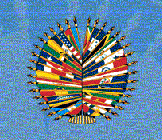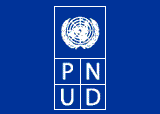NBC
Also moving on general news lines.
ASSOCIATED PRESS
CARACAS, Venezuela, Nov. 22 — Selling vegetables on a street corner
from the back of an old pickup truck, Elisa Quispe cringes at the
thought of yet another general strike against the government of
President Hugo Chavez.
When opposition labor and business groups called the last one, in
October, the 36-year-old Quispe stayed home because she feared a clash
between pro-government supporters and those demanding Chavez's removal.
Now, opposition leaders have called for the fourth strike in less than
a year to force a referendum on Chavez's rule. But after months of
sometimes violent street protests, with little to show for them, many
are reluctant to participate.
''If I don't work, I don't eat,'' Quispe said as she sold tomatoes,
cucumbers, and red peppers in Caracas. ''No one ever thinks about that
when they call all these strikes.''
Carlos Ortega, leader of the Venezuelan Workers Confederation, said
the one-day strike scheduled for Dec. 2 could be prolonged — or begin
earlier — if Chavez continues to resist a referendum.
The announcement Thursday came despite a warning from the Organization
of American States that another work stoppage could jeopardize
negotiations with Chavez's government to end Venezuela's deepening
political crisis.
''It's going to be very difficult to find a solution if (the
opposition) takes this type of action,'' OAE secretary general Cesar
Gaviria said in Caracas.
Chavez's government denounced the strike as ''subversive'' and warned
opposition leaders they would be held responsible for any disturbances.
Anti-government demonstrators say a mass strike is the only way to put
pressure on Chavez to leave office or accept a date for a referendum.
But popular support for the action has waned since an April strike and
massive opposition march in which 19 Venezuelans died amid clashes
with political rivals. The deaths led to a two-day coup and Chavez'
brief ouster.
Adding to the resistance are retailers desperate for a busy holiday
sales season after a year of recession.
Shining shoes in downtown Carabobo park, Ramiro Castaneda said the
constant protests and media attention have frightened people and hurt
business. Strike or no strike, he plans to work on Dec. 2.
''I'm sick of it,'' he said, sliding an old toothbrush along the soles
of a pair of loafers. ''I turn on the television at night and it's all
protests and strikes. I'd rather watch the animal channel.''
Chavez won the presidency in 1998 on promises to help Venezuela's poor,
about 80 percent of the population. His opponents are demanding he
step down before the end of his 2007 term, accusing the fiery leftist
of trying to implement a Cuban-style revolution and fueling class
divisions.
In December last year, millions of Venezuelans skipped work to protest
his efforts to tighten state control over industries ranging from oil
to agriculture.
Earlier this week, dissident army Gen. Enrique Medina Gomez said a
strike backed by Venezuela's oil monopoly could be the last chance to
remove Chavez. ''We're running out of options,'' he said.
Venezuela is a key oil producer and one of the United States' biggest
suppliers. Oil provides a third of Venezuela's gross domestic product
and half of government revenue.
On Tuesday, opposition leaders led a protest against Chavez's takeover
of the Caracas police department, accusing him of trying to
consolidate his power ahead of an electoral commission's decision on
the referendum. Chavez claimed the mayor had lost control of the
9,000-member force, which had been embroiled in a labor dispute.
Carmen Espinel, a sewing machine vendor, says she'd do almost anything
to see Chavez leave, but worries the strike will only bring more
violence. Espinel, 53, had to close her downtown shop after soldiers
fired tear gas at demonstrators in Tuesday's protest.
''I'm afraid we're going to end up in civil war,'' she said. ''Not
even God above can help us with this. We have to fix it ourselves.''
© 2002 Associated Press. All rights reserved. This material may not be
published, broadcast, rewritten or redistributed.
http://famulus.msnbc.com/FamulusIntl/ap11-22-095649.asp?reg=AMERICAS


